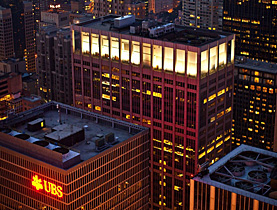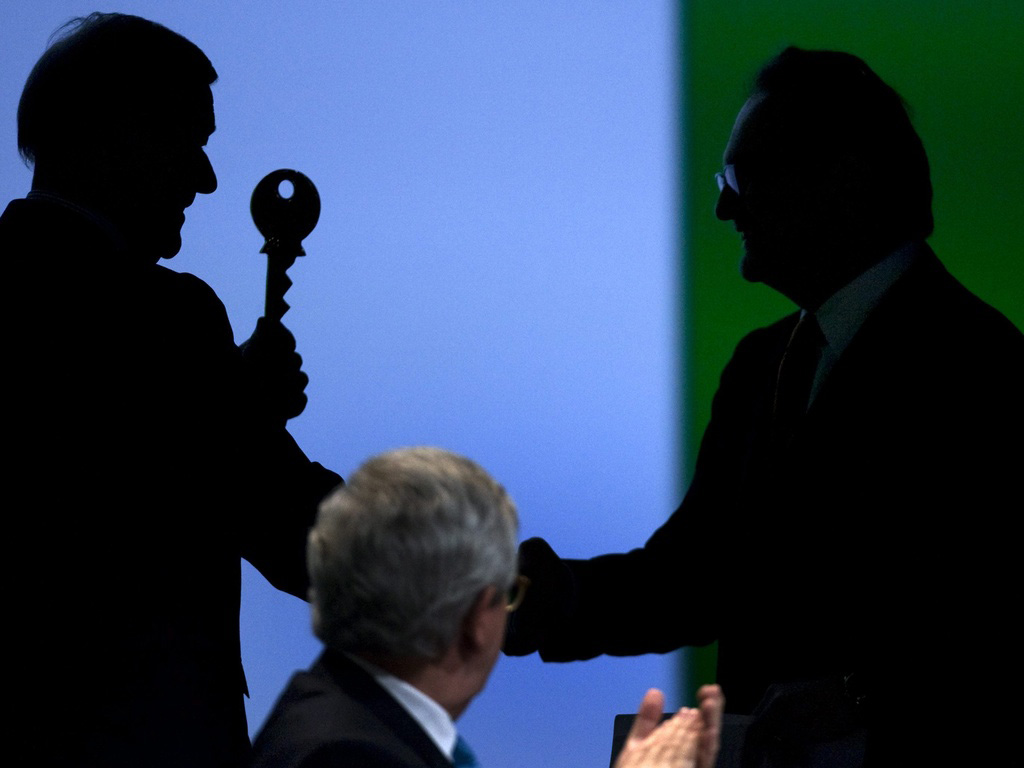US judge won’t delay prison for UBS informant

A federal judge has refused to postpone prison or consider a lighter sentence for a former UBS banker-turned-whistleblower.
Monday’s decision by US District Judge William Zloch means Bradley Birkenfeld must report to prison on Friday to begin a sentence of three years and four months, longer than what prosecutors had sought.
Zloch also refused to schedule a hearing on whether to reconsider the sentence.
Birkenfeld pleaded guilty last year to a fraud conspiracy charge. On Sunday he launched a last-ditch public plea against his jail sentence, appearing on US television show 60 Minutes on Sunday to state why he should remain free.
Prosecutors credit Birkenfeld, 44, with exposing wrongdoing at UBS and leading investigators to thousands of suspected US tax cheats who hid assets in the bank’s accounts. But they also said he failed to disclose his own crimes, including his work for a California real estate magnate who pleaded guilty in 2007 to tax charges.
But Birkenfeld argued on 60 Minutes that he had done enough by providing details of 19,000 other accounts containing SFr20 billion ($19.4 billion).
“I gave them the biggest tax fraud case in the world,” he said on the CBS show. “I exposed 19,000 international criminals, and I’m going to jail for that?”
Killing the goose?
Prosecutors declined to comment on Zloch’s ruling. The Washington-based National Whistleblowers Center, whose attorneys are representing Birkenfeld, said in a statement that putting such a prominent informant in prison could “kill the goose that laid the golden eggs” by deterring others from coming forward.
“If the [Obama] administration is actually serious about going after offshore tax evasion they need to be encouraging whistleblowers, not throwing them in jail,” said Dean Zerbe, special counsel at the Whistleblowers Center.
At Birkenfeld’s sentencing hearing in August, prosecutors said they might seek a sentence reduction if he continued to cooperate, but to date have not done so.
In court documents Birkenfeld lawyer Robert Stickney said the ex-banker was “ready, willing and able to cooperate further with the government”. However, no meetings have been held since his August sentencing.
Whistleblower reward
Birkenfeld, a US citizen who lived in Switzerland for 15 years, has been described as the single most important informant in the US probe of tax evasion and secrecy at UBS and other banks.
Armed with his disclosures, US officials reached a deferred prosecution agreement with UBS last February in which the bank agreed to pay a $780 million (SFr800 million) fine and reveal names of some 150 clients.
Later in 2009, UBS agreed under US pressure to release names of 4,450 wealthy Americans suspected of using secret accounts to evade billions of dollars in US taxes. None of those names has been made public, but several other former UBS clients have been prosecuted in the US based on the initial disclosures.
Birkenfeld meanwhile has applied with US tax agency the Internal Revenue Service for a whistleblower reward that, if approved, could bring him tens of millions of dollars, if not more. That request remains pending.
The Swiss perspective
Switzerland has been watching the proceedings with diligence. The country came under intense scrutiny last year for its international role as a tax haven that concealed the assets of tax cheats. The global pressure forced the Swiss to renegotiate various double taxation treaties with other countries.
On top of that, it emerged at the end of 2009 that a former employee of the Geneva-based HSBC private bank had stolen client data and handed it over to the French authorities. It is as yet unclear how the French will use the information.
The “culprit” on that occasion fled from under the nose of the Swiss authorities to France, where he remains shielded by a witness protection scheme.
The thought of another violator of banking secrecy laws getting away with Swiss crimes would have sent a shudder through the financial centres in Zurich and Geneva. But the biggest fear would be for two black sheep to turn into a flock.
swissinfo.ch
Switzerland has been under attack since the start of 2009 for helping foreign tax evaders hide their assets. The global crusade coincided with the devastation of the financial crisis leaving large holes in the budgets of many countries.
The OECD placed Switzerland on a “grey list” of uncooperative tax havens in April. They were removed in September after renegotiating various double taxation treaties, but the Swiss have refused to automatically transfer information to tax investigators without proof of crimes.
Several countries, including Italy, France, Britain and the ÛS launched tax amnesties this year in efforts to repatriate assets from tax cheats. These are forecast to damage the Swiss offshore banking industry.
Switzerland was particularly annoyed at the aggressive Italian amnesty that saw surveillance and tailing of cross border suspects going into Switzerland. The Swiss suspended ratification of the new double taxation treaty as a protest.
The most damaging tax evasion case involved the activities of UBS bank in the US. In February, UBS was fined $780 million after admitting helping US citizens to dodge taxes.
In September, the Swiss government was forced to hand over the details of 4,450 UBS clients to the US – in effect violating Swiss banking secrecy to prevent a ruinous court case for UBS.
Canada and India have also issued warnings that they will not tolerate Swiss banks sheltering tax evaders’ assets.

In compliance with the JTI standards
More: SWI swissinfo.ch certified by the Journalism Trust Initiative













You can find an overview of ongoing debates with our journalists here . Please join us!
If you want to start a conversation about a topic raised in this article or want to report factual errors, email us at english@swissinfo.ch.